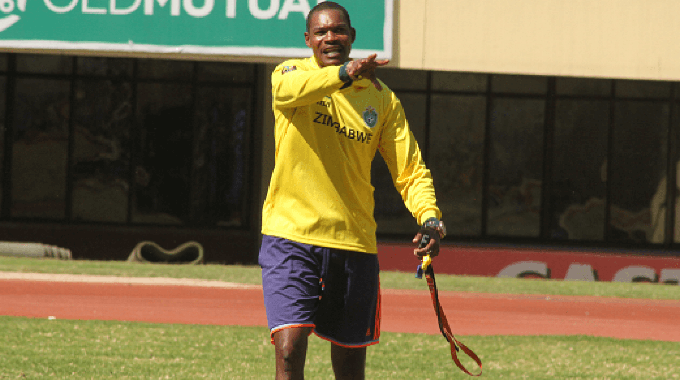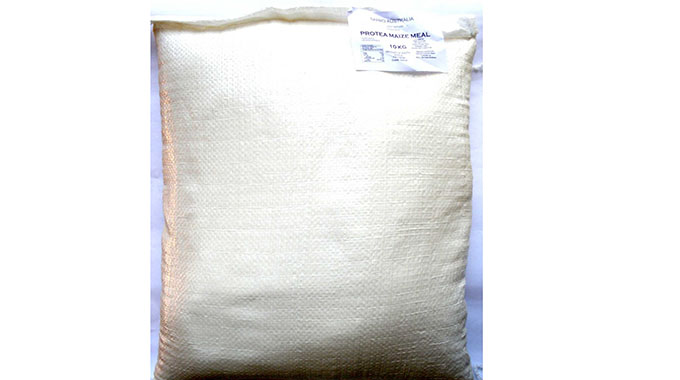THE PLATINUM BEAST . . . Mapeza and his troops join exclusive club . . . the Big Three clubs left chasing shadows

Robson Sharuko Senior Sports Editor
FIFTY years ago, Bulawayo Sables embarked on a trailblazing adventure that would see them set a benchmark for both excellence and greatness in the country’s top-flight league as they became the first local club to win back-to-back titles.
Norman Mapeza wasn’t even born back then.
A dozen years later, a Dynamos side emerged in the year of our Independence, to set the stage for a decade of ruthless domination which has never been matched in this league, and followed on that glorious path.
Memory Mucherahowa and his Glamour Boys — back in the years when DeMbare could produce immortals who could reach the CAF Champions League final before this great club became this walking shadow it has become today — joined the party in ‘94 and ‘95.
A brilliant Bosso team then exploded on the scene at the turn of the millennium, and left its footprints of greatness with four straight league titles, to also become members of this exclusive club of champions.
Charles Mhlauri and his steamrolling CAPS United then joined by winning back-to-back league titles in 2004, in a season when they lost just once and were unbeaten away from home, and in 2005.
Callisto Pasuwa and his Glamour Boys somehow found a way to stage a spectacular smash-and-grab mission in Zvishavane, dashing FC Platinum’s hopes, in 2011, to lay the foundation for four straight titles that earned them stripes in this exclusive company.
On Sunday, in the very town where those platinum dreams were crushed seven years ago, leaving a boulevard of broken hearts, FC Platinum found a magic formula to force their way into this exclusive family of back-to-back champions.
Fate, too, appeared to be casting its golden glow of light on them.
Somehow this had to happen in the year that marks the Golden Jubilee of the season, 1968, when the first team to achieve that feat, Bulawayo Sables, started their glorious adventure.
It also had to happen in the year that marks a decade since Mapeza first announced his arrival as a competent coach, when he won the title with modest club Monomotapa, in what was a remarkable transformation from a player — whose career graced the UEFA Champions League fields — to a fine gaffer.
Amid the toxicity of a football environment, which is being poisoned by the ugly politics of those fighting for its control, it’s easy to be tempted by the brutally of those fights and all the negativity that goes with that.
It’s easy not to see the beauty of the vintage picture which FC Platinum have been painting in the past two years.
It’s easy, too, to be lured by the negativity of the challenges which have reduced the usual Big Boys — Dynamos, CAPS United and Highlanders — into average clubs that didn’t even have any say in the destiny of this year’s championship race.
And it’s also easy to be deceived by a narrative that it was the Big Boys who failed, rather than the reality that it was these platinum miners who thrived and, once again, showed why they are setting a benchmark of excellence.
Maybe a little bit of history would help put things into context.
Until last year, when Mapeza and his men won the league championship, no club from outside Harare and Bulawayo had managed to do so since the start of the domestic league in 1962.
A number of great sides — Hwange, Mhangura, Rio Tinto, Gweru United, Masvingo United and Tanganda — came along but none was good enough to eventually transform themselves into champions.
John Rugg and his Rio Tinto even ended with the same number of points as champions Dynamos in 1983 only to be denied by goal difference.
Luke Masomere and his Yuna Yuna came within just a home win in their final game of the season in 2005, to be crowned champions, only for one of the worst DeMbare sides of all-time to spoil their party with a 2-1 victory on a rain-swept afternoon at Mucheke.
But last year, that pain was all ended by FC Platinum, who destroyed the myth that clubs from outside the country’s two biggest cities could not win the league championship.
And, on Sunday, against their very neighbours who first gave this town a taste of success in the domestic Premiership by winning the BP League Cup with a shock 1-0 win over Dynamos in the final in 2001, FC Platinum found their way to greatness.
Any team can win the league championship, after all Leicester City defied 5000-1 odds to become champions of England, and back home Gunners, Motor Action, Amazulu and Monomotapa transformed themselves into champions.
But when a team wins the title twice on the bounce, it raises its hand as a genuine article because such achievements can never be aided by fortune but can only be shaped by brilliance.
Mapeza has been ruthless in his quest for greatness, driving himself to the limit, and even refusing to be derailed by a freak gym incident that tested his back and sent him into hospital for surgery.
Not many would have dumped the bright lights of the capital to work at a mining town but he chose that path because he was thrilled by the challenge it presented for him to rewrite the history books.
He has built a solid team, which relies more on the combined strength rather than individuals who drag everyone along with their outstanding talents, and his faith in having a number of experienced hands has been repaid in full.
Where many coaches saw a Mkhokeli Dube who was past his prime, a spent force to be cast away into División One, Mapeza saw a striker whose experience would count when it mattered the most and the rest is history.
Where many coaches would have seen a Rodwell Chinyengetere, whose best days came before that injury which almost ended his career, Mapeza saw a star who could be revived to play a significant part in his team.
And in hiring Lizwe Sweswe as his assistant, he brought into the stable a young man with a good football brain who could be counted on to help him when the going got tough because he had shown his quality at Tsholotsho.
Other coaches would have been intimidated from bringing in someone like Sweswe because they want backroom staff who don’t have the quality to possibly succeed them because of fear they could lose their jobs and replaced by their lieutenants.
And, of course, there is the professionalism that George Mawere — the FC Platinum president who is one of the best brains in terms of leadership in the game — and his team have introduced at this club.
No more fancy nicknames like “Kugona Kunenge Kudada,” which gave them a false sense of greatness and appeared to mock their rivals, but simple and straight forward missions centred on the quest for greatness.
Something beautiful is happening in Zvishavane and, half-a-century after the Sables embarked on a similar journey which eventually yielded greatness for them, FC Platinum are reshaping domestic football.
It couldn’t have happened to a better team, whose professionalism and industry deserve dividends, but also to a better coach who keeps striving for excellence and is allergic to mediocrity.











Comments